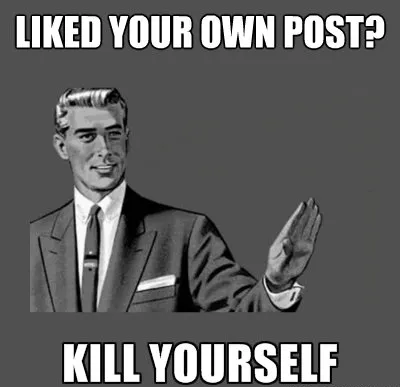
I woke up this morning with a weird thought in my head.
A billionaire can not consume a million haircuts. A billionaire can afford a million haircuts, but obviously that would never happen and is completely beyond the spectrum of reality. On a real level a billionaire is just a single person. A single person with a lot of money, but a solitary person nonetheless. A billionaire doesn't need more haircuts than anyone else in the world, just like they don't need more food or water or a myriad of other goods and services. One person is only one person within an economy, no matter how rich they are.
The point of an economy is to link people together within a greater ecosystem. If we could do everything then there'd be no need for an economy. If everyone had an army of robot slaves that did everything for them there'd be no reason to trade with other people; the robot army would take care of anything one needed. It will be interesting to see if AI devolves the economy in this manner, but that's another story entirely.
But what if...
What if this decentralization thing actually works out? What happens if economies become segregated by design? What does that even mean? Well imagine a community of like 1000 people pops up somewhere in the localized world and they're all using Hive (or Bitcoin or whatever) as their currency. How would that play out?
What if I was paying 30 Hive for a haircut?
Is it possible for small communities to create a unit-of-account regardless of USD market price? What if the price of Hive goes 10x relative to USD? Am I still paying 30 Hive for a haircut? Or will the price get reduced to 3 Hive? Is this a foolish endeavor? Should we just scrap Hive as a currency and price everything in dirty fiat? HBD certainly is a viable option. I'm not so sure anymore.
Creating an economy like this with Bitcoin seems dubious at best.
Bitcoin will never be a unit of account because that community insists that inflation is the devil and refuses to print more tokens. On a relative scale Bitcoin has already minted all the tokens they're ever going to mint. Think about it: 21M total tokens over the next 100 years and 19.4M of them have already been minted. Bitcoin basically already has 0% inflation today.
That is both a good and bad thing for various reasons, but within the context of creating communities and economies as a unit-of-account it's definitively a bad thing. Bitcoin is not currency; it is collateral. Very very good collateral. Luckily collateral can easily be leveraged into currency via derivatives. Hopefully that will be a painless experience, but somehow I doubt it, as creating robust decentralized derivatives is not a trivial process. Many will be heinously centralized and the people who use them will have no idea how they actually work.

But what about Hive?
The mechanics of Hive are uniquely suited to this situation. What if instead of paying 30 Hive for a haircut it got to the point where I was just paying 1 upvote for a haircut? Boom: I click a button and the service is paid for. This is where things get interesting.
Now if Hive goes 10x am I really going to start paying for things with 10% of an upvote? I mean... why would I do that? I get 10 upvotes per day I have to spend them somewhere. If I was inside of an active Hive community like this it would make sense to just keep paying the full upvote even if Hive went 10x or even x100 or x1000. Think of it as an absurdly strong tipping-culture.
It is in this way that we see that small communities actually can create unit-of-accounts regardless of what the token is selling for on the outside market. This is actually similar to a country's currency itself. When you go to Mexico the Dollar has more purchasing power than the Peso. The Peso can lose value against the Dollar but that doesn't necessarily mean that prices go up. Outsiders might get charged more, but regulars often get the better deal. I believe the same will happen with crypto with exponential affect.
It's all about reputation and networking.
Without human intervention a system like this gets hacked into oblivion. If Hive goes 100x and people are suddenly paying the equivalent of $1000 for a haircut then won't some random come in and start selling haircuts for $900? Sure, they might, but who's going to pay some random who just jumped on the scene looking to capitalize on the good fortune of the community?
The same goes for the bad times as well. If Hive loses 99% of it's value it's expected that the community would take the loss and continue trading at discounted prices. The bigger the community is and the more infrastructure it has the less the market price matters. If you could get everything you needed from within the community it doesn't matter if the outside value tanks 99%. The prices within the community could still be relatively stable, which is all that matters. This in itself would make the currency much more stable to begin with, and thus a 99% loss would never even happen in the first place as there are too many buyers of last resort floating around.

However there's a lot to be said about dependence on imports.
Even entire countries like Cuba and Venezuela are not even close to self-sufficient, which is why imposing sanctions on them has such an obliterating effect on their economies. A small community of 1000 people could never hope to produce their own cars and build their own houses and phones with internet services. However again: technology, automation, and AI are lowering the bar so it's possible that self-sufficiency becomes more and more tenable for smaller and smaller economies.
People don't work for peanuts!
Or do they? What if everyone in the community actually has the money to make it through hard times? What if everyone in the community doesn't really need a loan to buy a car or a house or start a business? No more living paycheck to paycheck. These are the kinds of economics that crypto can create that the legacy world could never even dream possible. Trying to speculate on what could be is quite difficult because we've never seen these variables in play. Economic simulations are very complex and difficult to predict.
Conclusion
Unit-of-account is one of the most important aspects of a currency, and it is certainly one of the biggest problems with volatile cryptocurrency. If people can't price goods and services within the currency they want to use then quite simply that 'currency' (collateral) will not be used as a currency.
Can small communities overcome this hurdle and simply price their goods and services regardless of outside market price? Perhaps. It's not so different than the developing world and FOREX markets. The difference with crypto is that a centralized agent isn't sucking the lifeforce out of every citizen's pocket. We might find out a decade down the line that economic models that were previously thought to be impossible become trivially easy to impose with programmable money controlled by no one. It's difficult to speculate on such a volatile and immature technology, that's for certain.
Return from The Divergence to edicted's Web3 Blog
